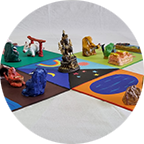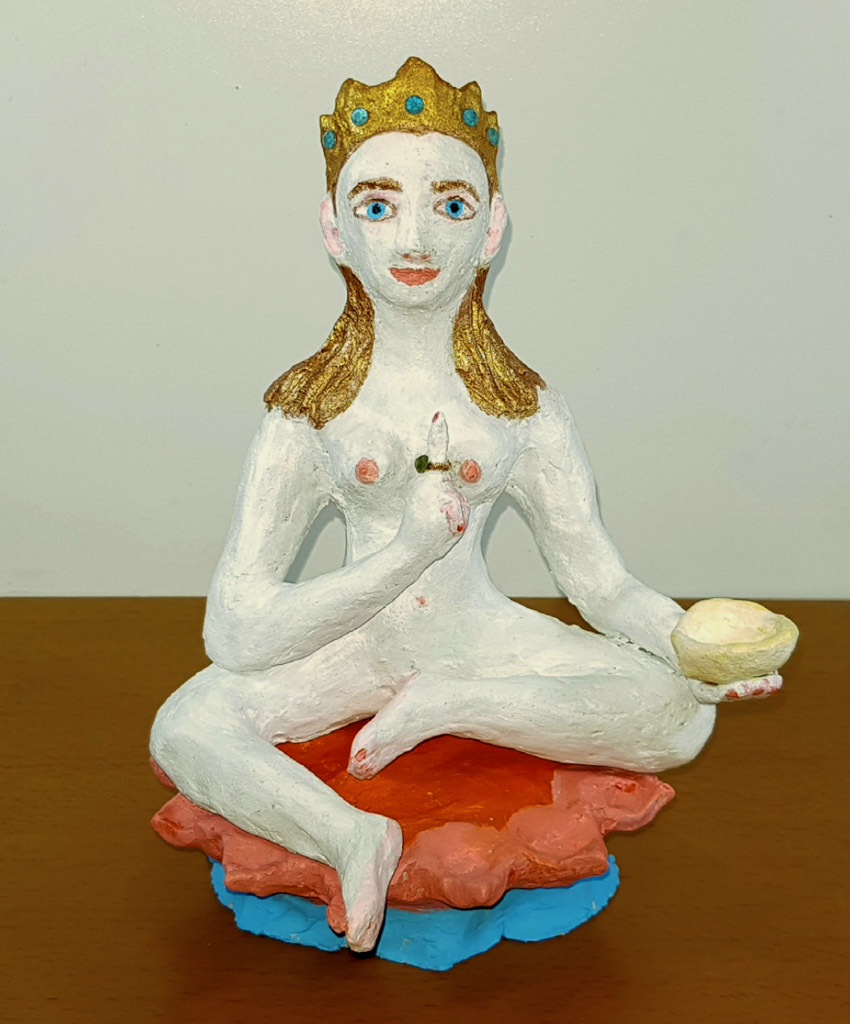Retelling: Vova Pyatsky and Smadar Pyatsky (based on the translations of the suttas published on Theravada.ru and SuttaCentral.net)
Russian Version: Саллекха Сутта, Растворение заблуждений, Мадджхима Никая 8 | Три Ваджры
Translation to English: Roni Sherman and Marina Sherman
Salekha Sutta — The Dissolution of Delusions Majjhima Nikaya 8
The novice Chunda asked the Buddha: “If I, as a novice disciple, only attain the rules of conduct, would delusions about the “I” and the “world” dissolve in me?”
The Buddha’s Response
The Buddha explains to the disciple that the dissolution of delusions depends only on the extent to which the vices of the mind have been discarded. After all, even higher forms of practice, such as, for example, the eight kinds of samadhi (the four dhyanas with form and four formless dhyanas Pothapadha Sutta, Digha Nikaya 9), however important and majestic they are, do not lead, on their own, to the dissolution of delusions about the “I” and the “world”. Both at the beginning of training and in higher practices, success depends on the discernment of defiled and pure qualities of the mind, on discarding the defiled and promoting the pure.
Renunciation of Defiled Qualities
You should think like this: “Other people often accumulate defilements. I won’t accumulate defilements”.
Cruelty, violence and theft — here are the first defilements you should renounce.
Seeking pleasure, pretense, lying, hatred, rudeness, bad company, fear of hearing unpleasant things about yourself, gossiping, arrogance, resentment, stinginess, stubbornness, contempt, shamelessness, lack of faith, carelessness — here are the defilements of conduct which should be renounced following the first defilements.
The five hindrances — ill-will, greed and envy, restlessness, doubt and indolence and apathy — here are the defilements which should be addressed in the mind.
Think: “Usually worldly people tenaciously cling to their false views and beliefs. But I will readily give up my worldly beliefs and views.”
Promotion of Pure Qualities
Think: “Other people rarely tend to accumulate pure qualities. I will accumulate pure qualities.”
The eight foundations of the Noble Path of the Cessation of Suffering — here are the pure qualities one should accumulate (right view, right aspiration, worthy speech, worthy deeds, livelihood not besmirched by vices, diligent effort in overcoming vices and developing wholesome qualities, vigilance, skilful concentration). They lead to enlightenment and liberation.
Author
Retelling: Vova Pyatsky and Smadar Pyatsky (based on the translations of the suttas published on Theravada.ru and SuttaCentral.net)
Russian Version: Саллекха Сутта, Растворение заблуждений, Мадджхима Никая 8 | Три Ваджры
Translation to English: Roni Sherman and Marina Sherman
Salekha Sutta — The Dissolution of Delusions Majjhima Nikaya 8
The novice Chunda asked the Buddha: “If I, as a novice disciple, only attain the rules of conduct, would delusions about the “I” and the “world” dissolve in me?”
The Buddha’s Response
The Buddha explains to the disciple that the dissolution of delusions depends only on the extent to which the vices of the mind have been discarded. After all, even higher forms of practice, such as, for example, the eight kinds of samadhi (the four dhyanas with form and four formless dhyanas Pothapadha Sutta, Digha Nikaya 9), however important and majestic they are, do not lead, on their own, to the dissolution of delusions about the “I” and the “world”. Both at the beginning of training and in higher practices, success depends on the discernment of defiled and pure qualities of the mind, on discarding the defiled and promoting the pure.
Renunciation of Defiled Qualities
You should think like this: “Other people often accumulate defilements. I won’t accumulate defilements”.
Cruelty, violence and theft — here are the first defilements you should renounce.
Seeking pleasure, pretense, lying, hatred, rudeness, bad company, fear of hearing unpleasant things about yourself, gossiping, arrogance, resentment, stinginess, stubbornness, contempt, shamelessness, lack of faith, carelessness — here are the defilements of conduct which should be renounced following the first defilements.
The five hindrances — ill-will, greed and envy, restlessness, doubt and indolence and apathy — here are the defilements which should be addressed in the mind.
Think: “Usually worldly people tenaciously cling to their false views and beliefs. But I will readily give up my worldly beliefs and views.”
Promotion of Pure Qualities
Think: “Other people rarely tend to accumulate pure qualities. I will accumulate pure qualities.”
The eight foundations of the Noble Path of the Cessation of Suffering — here are the pure qualities one should accumulate (right view, right aspiration, worthy speech, worthy deeds, livelihood not besmirched by vices, diligent effort in overcoming vices and developing wholesome qualities, vigilance, skilful concentration). They lead to enlightenment and liberation.

